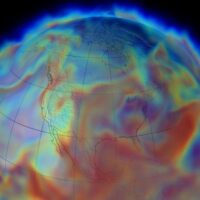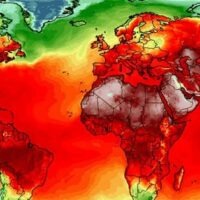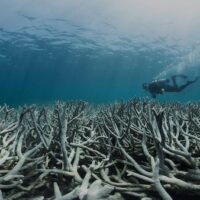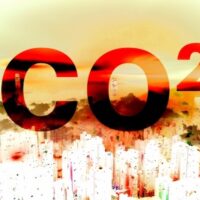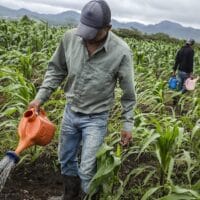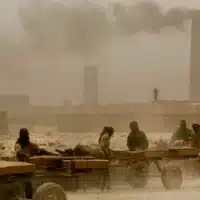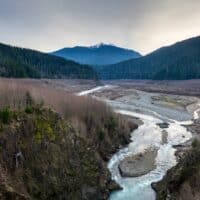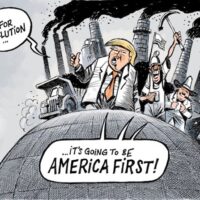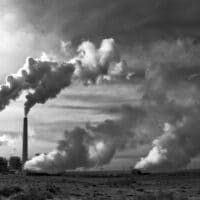-
Can carbon dioxide removal save the climate?
The concentration of carbon dioxide in the world’s atmosphere is now very close to 429 parts per million.
-
Conservation Innovations: How sustained resistance is saving one of the Earth’s most critical rainforests from corporate greed
As profit-driven exploitation imperils Indonesia’s Leuser Ecosystem, some unique conservation strategies are working to save it.
-
Global heating isn’t just getting worse. It is getting worse faster.
Surplus heat is accumulating in the Earth system at an accelerating rate.
-
From the Rockies to Stockholm: Ignoring the global crisis
A significant economic slowdown into stagnation, alongside still relatively high inflation; a crippling debt burden for the majority of the world’s population eking out a bare living; and an accelerating climate crisis—none of these issues will be discussed in the Rockies or in the Grand Hotel in Stockholm.
-
1.5 is dead: How hot will the Earth get?
It may be ‘technically possible,’ to keep global heating below 1.5 degrees, but it isn’t going to happen..
-
‘Ticking time bomb’ of ocean acidification has already crossed planetary boundary, threatening marine ecosystems: Study
On the first day of the United Nations Ocean Conference in Nice, France, the findings of a new study have revealed that ocean acidification (OA)—which damages ecosystems like coral reefs—is not only getting worse, but crossed its “planetary boundary” roughly five years ago.
-
Nicaragua and China break ground on landmark Solar project to power water access and energy sovereignty
Nicaragua, with Chinese financing, launches its largest solar plant to date—powering water systems, cutting energy costs, and deepening South-South cooperation on infrastructure for social good.
-
From media darling to persona non grata: Greta Thunberg’s journey
Once the favored child of the establishment, Greta Thunberg has been dropped by the global elite.
-
Capitalism is burning the world: Canada’s wildfire season
Canada’s new liberal prime minister has given the lie to the notion that a green capitalism is possible with fossil-fuel friendly policies as the climate crisis intensifies, explains John Clarke.
-
The hidden battle: India’s water war against Pakistan
New Delhi’s escalation over the Indus River isn’t just environmental–it’s strategic, existential, and signals a new front in the war of attrition with Islamabad.
-
Don’t believe the New Cold War lies, China is leading the world in climate solutions
At the time of the 1949 revolution, China was largely an agrarian society with widespread poverty, famine and lack of infrastructure.
-
Analysis: Clean energy just put China’s CO2 emissions into reverse for first time
For the first time, the growth in China’s clean power generation has caused the nation’s carbon dioxide (CO2) emissions to fall despite rapid power demand growth.
-
Summer-like slug of heat pushes across much of North America
Temperatures hit 100°F in northern Minnesota, 112°F in Texas, and 115°F in Mexico.
-
Absurd (scary) CO2 emissions
In a major blow to the Paris ’15 climate agreement, last year witnessed one more nail in the coffin of the celebrated agreement to slow down CO2emissions by 2030, as CO2, for the first time in modern history, enters the scientifically established danger zone.
-
The right to water: A new front in Trump’s aggression on Mexico
For the first time in 81 years, the U.S. denied Mexico’s request to supply water from the Colorado River to Tijuana.
-
Iraq – Rising temperatures increasing poverty and unemployment
The contradiction in the geographical distribution of Iraq’s population precisely reflects the contradiction in the distribution of wealth in capitalist society.
-
America’s national parks are among the victims of Donald Trump’s and Elon Musk’s efforts to drown our government in a bathtub
Park rangers are our most trusted federal employees, and national parks are America’s gift to the world… but the new Trump regime is choking them, depriving them of the personnel and resources they need.
-
Trump declares all state environmental laws to be null and void
Trump signed an executive order declaring all state laws that address climate change to be null and void.
-
Canada’s support for LNG is support for Trump’s new form of fossil-fuelled fascism
Trump is bringing the contradictions of Canadian climate policy clearly into view.
-
Advancing the boundaries of science: From Oparin, Haldane, Bernal to today
One of the arguments in favour of a divine power–or god–is that life could not have arisen naturally and needed a touch of the divine to come into being.




